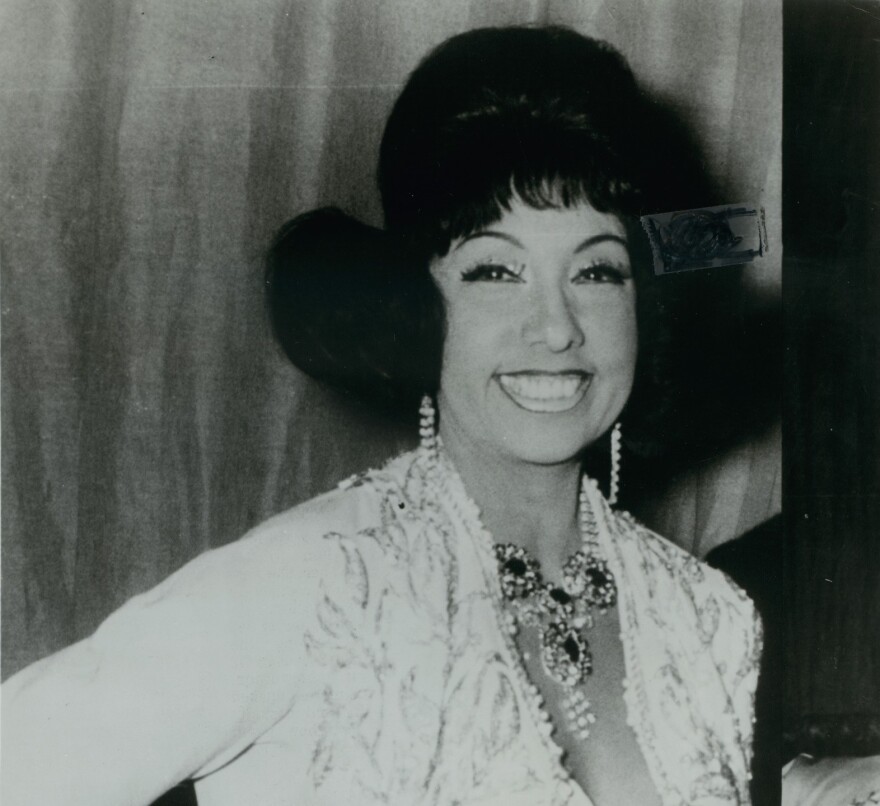Born in St. Louis in 1906, Josephine Baker became an international star after moving to France in the 1930s. She became a French citizen in 1937.
Tomorrow, Baker, who died in 1975, will receive France’s highest honor: induction into the Panthéon mausoleum in Paris. Her remains will stay in Monaco, and a cenotaph will honor the renowned singer, dancer, resistance fighter and civil rights activist at the Panthéon.
“It is the ultimate honor,” said Lionel Cuillé, a French professor and director of the French ConneXions cultural center at Washington University. “Not only did Josephine Baker receive the Legion of Honor, but being at the Panthéon is the place for the greatest people in France, ever.”
Baker will be the sixth woman — and first Black woman — to enter the mausoleum among several dozen Frenchmen who include Voltaire, Victor Hugo and Louis Braille.
“I think [Baker] represents, for the French, a symbol of hope, a symbol of joy that comes at the right time now in France, and a model of someone who succeeded and who represents a minority,” Cuillé said on Monday’s St. Louis on the Air. “And that is politically very important right now in France, when we are very close to the next presidential elections and when we see the rise of extremist parties on the right.”
The French cultural center at Washington University will host events tonight and tomorrow honoring Baker’s induction. The organization receives support from the French Embassy as one of several Centers of Excellence located at major academic institutions throughout the U.S.
Another event on Friday will, among other things, honor Baker’s contributions to dance. The Griot Museum of Black History is hosting that event at Harris-Stowe State University.
“I think her life was about making a difference, making a change,” said Lois Conley, the founder, president and CEO of the Griot Museum of Black History. Conley explained that Baker stood firmly against oppression and discrimination and that, in part, is what drove her overseas. In France, she didn’t have to deal with the high level of segregation in the United States.
In addition to Baker’s contributions as an entertainer, Conley also touched on Baker’s role as a civil rights activist and spy during World War II.
One of the Griot’s permanent exhibits honors Josephine Baker, but Conley said her contributions aren’t noticed enough in St. Louis and the United States.
“It again speaks to where we still are in this country in terms of race and race relations. We still do not embrace the African American people in the way that they need to be embraced, and it's sad for our city,” Conley said.
Related Events
What: Josephine Baker: J’ai Deux Amours
When: 6:30-8 p.m. Nov. 30
Where: Missouri History Museum, 5700 Lindell Blvd., St. Louis, MO 63112
What: Documentary screening of L’autre Joséphine
When: 5-6:30 p.m. Nov. 29
Where: Brown Hall 100 at Washington University
What: Celebrating Josephine Baker
When: 4-6 p.m. Nov. 30
Where: Graham Chapel at Washington University
What: Josephine Baker: Artist and Activist
When: 7-8:30 p.m. Dec. 3
Where: Emerson Performance Center at Harris-Stowe State University
“St. Louis on the Air” brings you the stories of St. Louis and the people who live, work and create in our region. The show is hosted by Sarah Fenske and produced by Alex Heuer, Emily Woodbury, Evie Hemphill and Lara Hamdan. Jane Mather-Glass is our production assistant. The audio engineer is Aaron Doerr.






